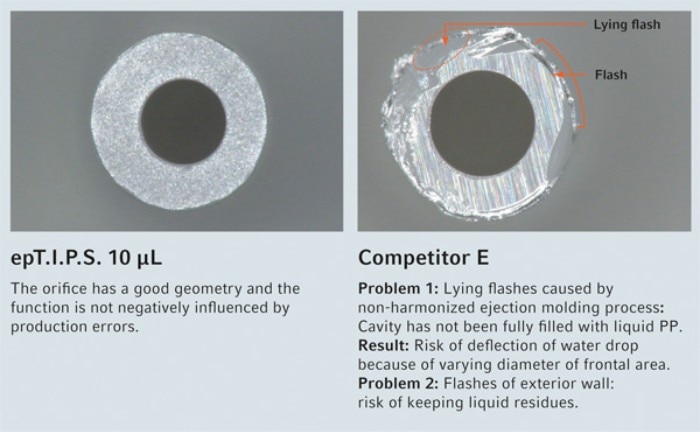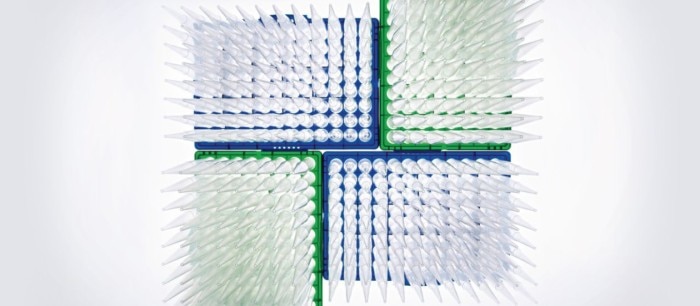
The Tip of the Iceberg – How Pipette Tips Influence Results
Akademia laboratoryjna
- Biotechnologia
- Pipetowanie i dozowanie
- Amplifikacja i PCR
- Dokładność
- Pipety
- Końcówki do pipet
- Eksperyment
When was the last time you were upset about non-reproducible results, for example in a real-time PCR? You checked all the variables in your experiment but were still unable to find the cause? During pipetting (the most frequent step in any experimental process) you always used a pipette with a "fitting" tip-thus a system made up to two components, the precision and accuracy of which you thought you could rely on during the whole workflow. But perhaps you could not! Perhaps at this stage of your experiment you see "The tip of an iceberg", which hides below the line several sources of errors resulting in how pipette tips influence results, because the fact that a tip fits onto a pipette cone does not say anything about the performance of the pipetting system comprising the components "Pipette and tip".
The fact that a tip fits onto a pipette does not ensure that the system is working within error limits!
This picture shows the calibration results using tips of 15 different manufacturers.
Przeczytaj mniej
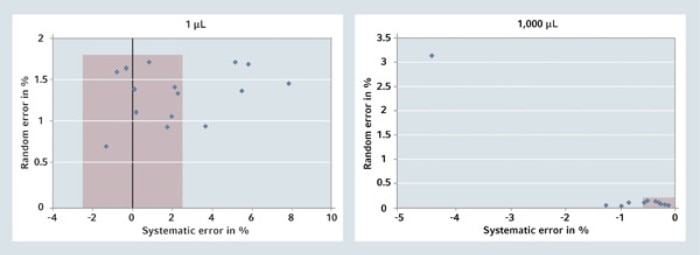
Pipettes are adjusted to a certain air-cushion volume of tips and hydrostatic pressure. Comparing tips of different manufacturers it is easily to see, the differnces in size and shape. Additionally the tip-to-tip-quality is also an influencing factor. A testing prod (exact dimension!) fit in different positions with three randomly chosen tips from a box of other manufacturer tips.
Przeczytaj mniej
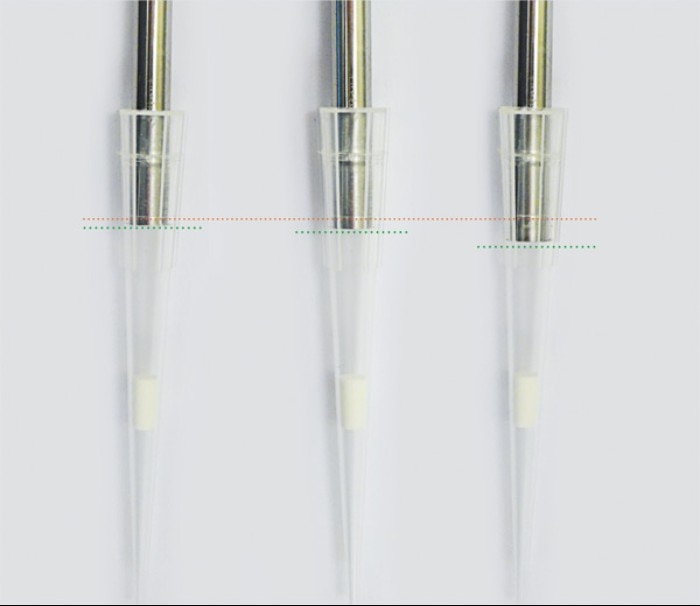
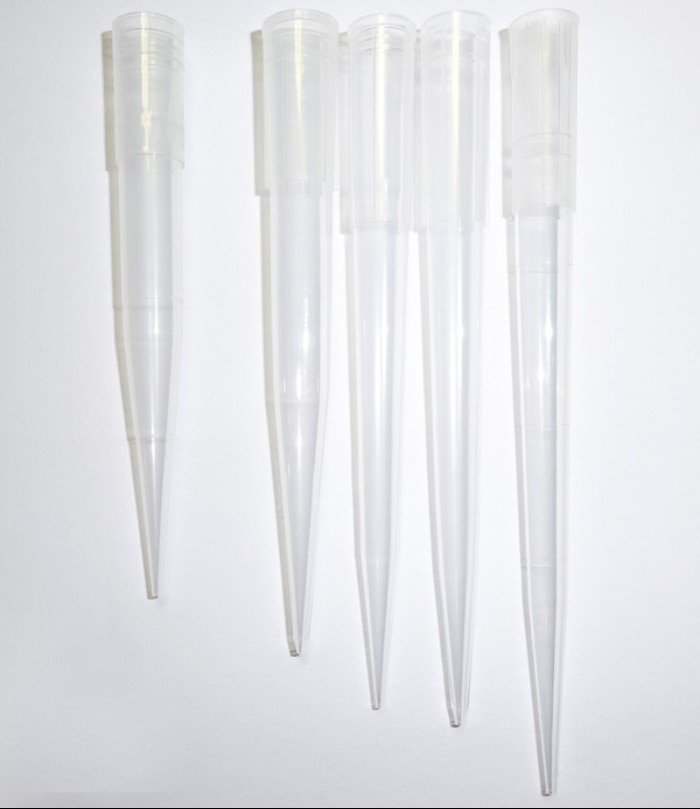
With small volumes the tip orifice is of high importance since it influences the drop cut-off. For the competitors who failed calibration at 1 µL, a very poor quality of orifice was found. Such production flaws lead to deflection of water drops, displacement of liquid and retention of water.
Przeczytaj mniej
